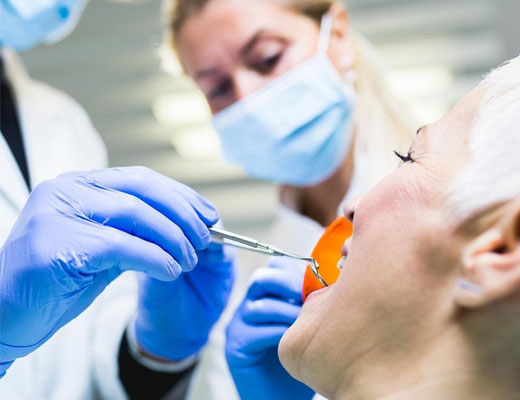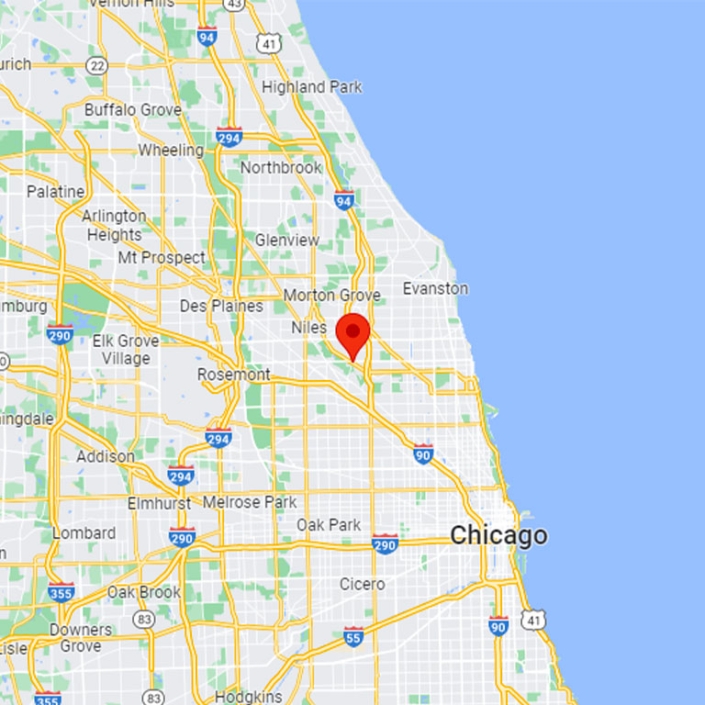Extractions
 Do you have a tooth that needs to be extracted? While tooth extraction can be a little scary, with a good dentist in Chicago, IL, there is no reason to be apprehensive. Tooth extractions can be recommended for many reasons. The dentist will discuss these reasons with you if they determine extraction is the best route of treatment for your situation. Find out more about tooth extractions and what to expect when you visit Mindful Dental for treatment.
Do you have a tooth that needs to be extracted? While tooth extraction can be a little scary, with a good dentist in Chicago, IL, there is no reason to be apprehensive. Tooth extractions can be recommended for many reasons. The dentist will discuss these reasons with you if they determine extraction is the best route of treatment for your situation. Find out more about tooth extractions and what to expect when you visit Mindful Dental for treatment.
Why Would Tooth Extraction Be Necessary?
Tooth extraction is not recommended lightly. Your natural teeth are very important to your overall health. However, there are specific situations when extraction may be necessary.
Tooth extraction may be necessary when a tooth is extensively damaged or decayed beyond the point of repair. In cases where the tooth structure is compromised due to decay or trauma, such as fractures or cracks, extraction might be the only viable solution. If left untreated, a severely damaged tooth can lead to persistent pain, infection, and further dental issues.
Impacted wisdom teeth, also known as third molars, are another common reason for tooth extraction. When these teeth do not have enough space to erupt properly or emerge at an angle, they can become impacted by neighboring teeth.
In some cases, tooth extraction is part of orthodontic treatment to address overcrowding or misalignment issues. Removing one or more teeth creates space for the remaining teeth to align properly during orthodontic treatment, such as braces or clear aligners.
What to Expect During Tooth Extraction
Tooth extraction is a straightforward procedure, but it can be broken down into four parts. While your procedure may be unique depending on the circumstances, below is what you can usually expect.
1. Preparation for Extraction
Before the extraction, your dentist will review your medical history and possibly take X-rays to understand the tooth’s position and condition. You may also be asked a few questions about your medical history and condition, as well as about any medications you are currently taking.
2. Anesthesia
Local anesthesia to numb the area around the tooth ensures you don’t feel the extraction. This is given with a localized series of injections in the soft tissue. In some cases, sedation may be used to help you relax during the procedure if you have opted for this level of treatment. In either case, the dentist will deliver the anesthesia and wait a few minutes to make sure you are completely numb before the extraction.
3. Extraction Process
Using specialized tools, the dentist will loosen the tooth from its socket in the jawbone and gum tissue. They may need to make an incision in the gum to access the tooth, especially if the tooth is broken or a larger molar.
Depending on the tooth’s condition and position, the dentist may perform a simple extraction (for visible teeth) or a surgical extraction (for impacted or broken teeth). You may feel pressure during the extraction, but you should not experience pain due to the anesthesia.
4. After Extraction
Once the tooth is completely extracted, a piece of rolled gauze will likely be inserted into your mouth. The dentist will instruct you to bite down on this to apply pressure to the extraction site. This helps to control bleeding and encourages a blood clot to form.
The Recovery Period Post Tooth Extraction
After a tooth extraction, you can expect some swelling, discomfort, and minor bleeding at the extraction site, which should gradually improve over a few days. You may be directed to use over-the-counter pain relievers during this time for discomfort.
To aid in healing, be sure to follow your dentist’s post-operative care instructions, including avoiding hard-to-chew foods, taking any prescribed medications, and not smoking. Any recommendations the dentist provides are given to make sure you can avoid complications like a dry socket or infection.
Watch for signs of potential complications such as excessive bleeding, severe pain, persistent swelling, or signs of infection like fever or foul odor. While complications after an extraction are rare, any of these signs warrant a call to the dentist’s office for advice.
Contact Mindful Dental About Tooth Extractions in Chicago, IL
At Mindful Dental, we are always mindful of our patients’ needs and concerns and work to make tooth extractions as comfortable as possible. If you have a tooth that is causing problems that you feel may need to be extracted, reach out to our office to schedule an appointment today.


